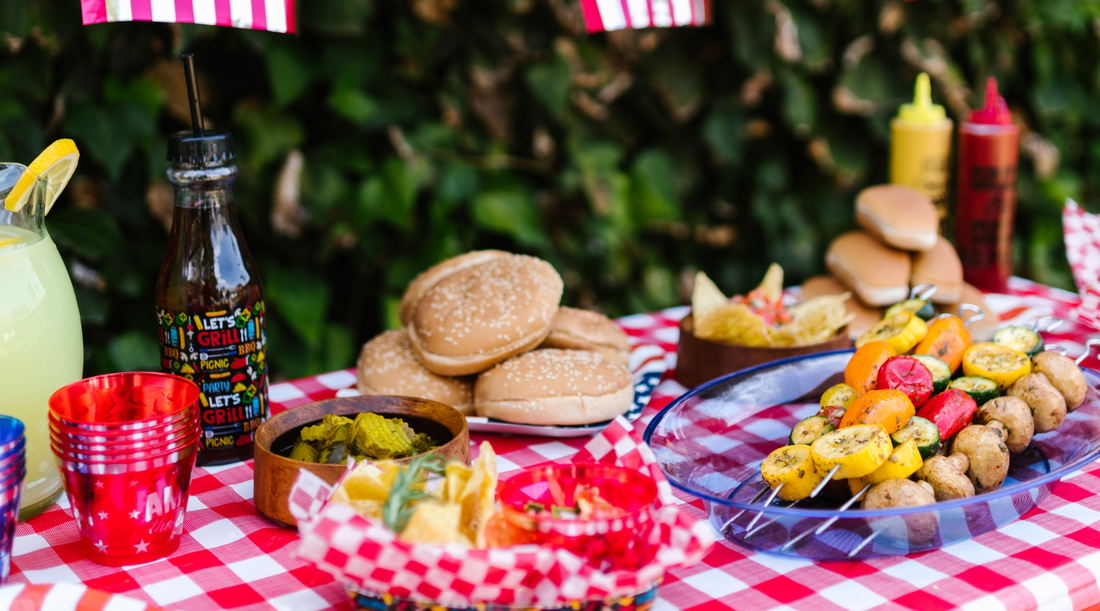
How to Talk to Kids About Food Allergies
Share
Springtime brings so many opportunities for celebration—Easter egg hunts, birthday parties, school potlucks, picnics, and family gatherings. But for many children, these fun-filled events come with serious risks. Food allergies affect millions of kids in the United States.
That’s why it’s so important to teach all kids—not just those with allergies—how to be thoughtful, safe, and kind when it comes to food. In this post, we’ll share tips to help your child understand what food allergies are, how to support friends who have them, and ways to keep celebrations inclusive and safe for everyone.
💡 Why Teaching EVERY Child About Food Allergies Matters
Common allergens include peanuts, tree nuts, dairy, eggs, soy, wheat, and shellfish. Reactions can range from mild to life-threatening, which makes awareness crucial—even for children who don’t have allergies themselves.
Even if your child doesn’t have food allergies, they almost certainly know someone who does. Learning about allergies helps children:
✅ Practice empathy
✅ Be safer at school, parties, and playdates
✅ Understand how to include and support their friends
✅ Become responsible, kind community members
🗣️ How to Talk to Kids About Food Allergies (When They Don't Have Them)
1. Use relatable language
Explain that some kids' bodies don’t react well to certain foods—like how someone might get itchy, get a tummy ache, or have trouble breathing.
🗨️ Try saying: “Just like you sneeze around cats, some kids get really sick if they eat even a tiny bit of peanuts.”
2. Encourage thoughtful behavior
Whether your child is sharing snacks or celebrating a birthday, remind them to think about their friends’ needs.
🗨️ “Let’s check if this snack is safe for everyone before we share.”
3. Teach kids that allergies are serious, not silly
It’s easy for kids to think someone’s being “picky” or “dramatic” if they don’t understand. Let them know food allergies are real and important.
🗨️ “It’s not about being picky—this is how we help keep our friends safe.”
4. Promote inclusive language and kindness
Kids learn from what we say and how we treat others. Model kindness by avoiding jokes or comments about “weird” or “special” foods.
🗨️ “Everyone’s snack looks a little different, and that’s totally okay.”
5. Set an example at home and at school
If your child is attending a party or hosting an event, involve them in preparing or choosing allergy-safe snacks to bring or serve. Talk about how everyone deserves to feel included at the table. Also discuss not to take it personally if a child with a food allergy refuses their snacks, as sometimes children with food allergies feel most comfortable with only eating food that was packed in their home. If your child is curious about a friend’s allergy or restriction, encourage them to ask questions kindly—or better yet, just listen when a friend shares.
❤️ At Carabie, Inclusion Starts in Childhood
At Carabie, we believe teaching empathy early is one of the greatest gifts we can give our children. That’s why our inclusive stuffed animals and books are designed to spark meaningful conversations about health and differences—from eczema and asthma to social-emotional wellness.
Every child deserves to feel seen, safe, and included. And every child can learn to be a better friend, one snack, story, or act of kindness at a time.
💡 Looking for more ways to teach empathy and health awareness? Explore Carabie’s health-based plushies and picture books—tools that help families build compassion through play.